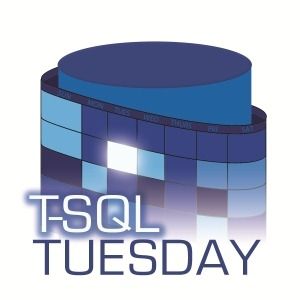Because I’m lazy I’m going to say that this post is a response to Brent Ozars TSQL Tuesday invite. It’s wasn’t originally, it’s a week laste, but it kinda fits so let’s roll with it and not ask too many questions?
Brent asks “What was the last ticket you closed?” Unlike most of the respondents I do work in a system where tickets are a real thing and they do largely drive me day. Everything gets turned into tasks, these are tracked against budgets and deadlines and the ticketing system RULES OUR LIVES!

But the last ticket I closed wasn’t actually a ticket, it was a task in Microsoft to-do, or planner, or whatever it’s being called this month. I have a recurring task for several pieces of our documentation that prompts me to go and review what is written, and if necessary to change it.
Why would I do that? Well put simply, I hate documentation, but I hate documentation slightly less than I hate ‘lack-of-documentation’. I’m primarily a technical person and I like to have a list of things or a process to follow for repeatable tasks. Ideally I like to automate them, but that’s something you do after you have a reliable process, not before. I also like to make sure that any process my colleagues have to work through has a nicely documented set of steps too, but the problem is that sometimes that changes as you change your infrastructure, or SaaS products, or software changes or a bunch of other things. The problem is that documentation is seldom scoped as part of any project, and if it is it’s rare that it’s scoped sufficiently to actually do the documentation justice.
And why is hunting down outdated documentation particularly important right at this point of time? Because the world is changing, and we are unleashing AI on our systems, and it’s pulling recommendations from documentation we wrote 5 years ago and never updated or removed from the system. I want to work in an organization that is AI ready, and unfortunately that means a certain amount of legwork to work through all the different boring bits of source material that AI is going to be using to create it’s responses.
There’s a huge amount of buzz about Artificial Intelligence at the moment, and rightly so. But not enough discussion about the groundwork that’s needed for good results. Put simply the businesses that have prioritised structure, process and documentation will reap the benefits of that investment as they integrate AI into their workflows. The businesses who haven’t are the ones that will find AI giving them the strangest answers and have the lowest level of trust in what AI is doing for them. Let’s face it, there’s a lot of these businesses out there, and they are the most likley to jump in feet first to the AI world looking for a miracle that they simple haven’t earned yet.
So, closed? Temporarily. I’ve completed the key bits, but this is a ticket that is never really closed. If we want to get best value from AI we need to make sure it’s source data is as accurate as possible and that’s an ongoing process. Maybe with the right prompting it’s a task AI can eventually take over itself, but until then…. Garbage in-garbage out. Funny how working with data just keeps coming back to the same concepts isn’t it?